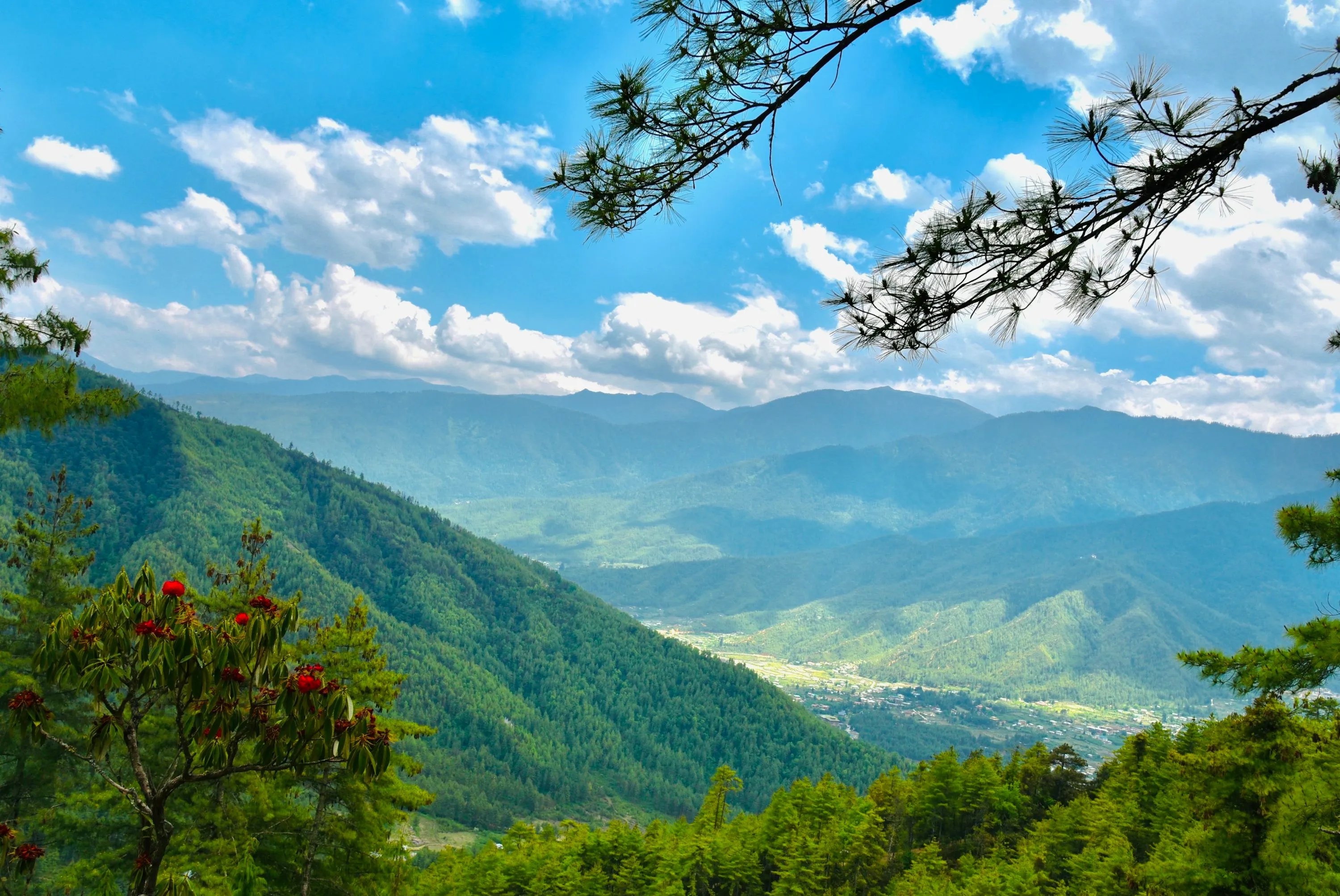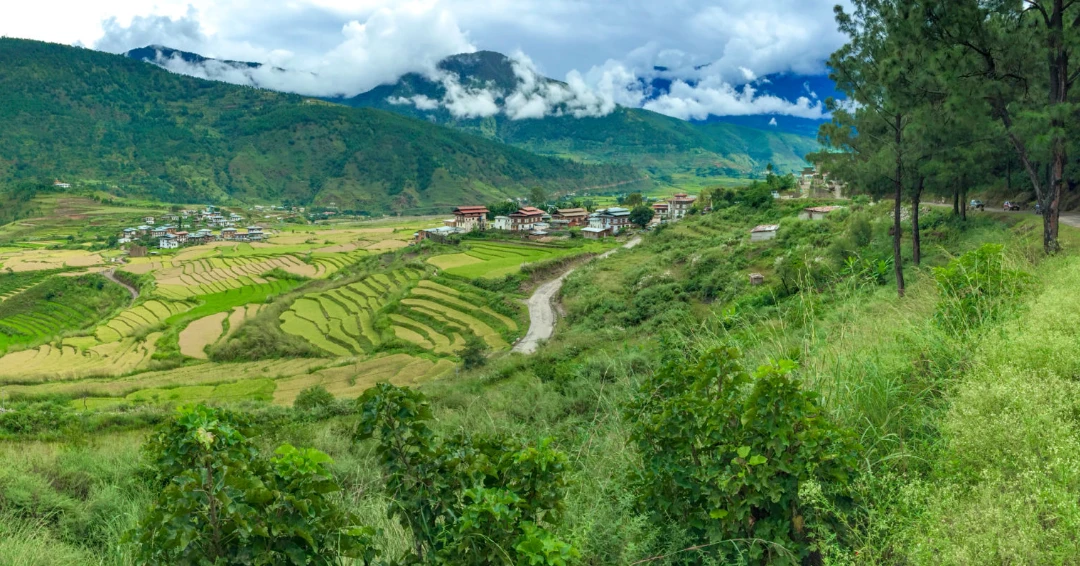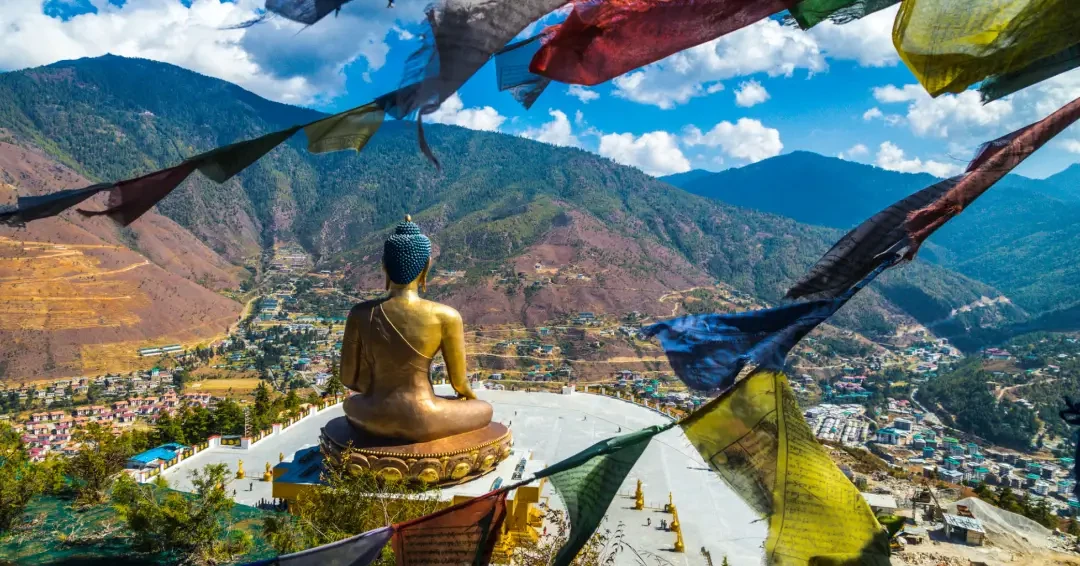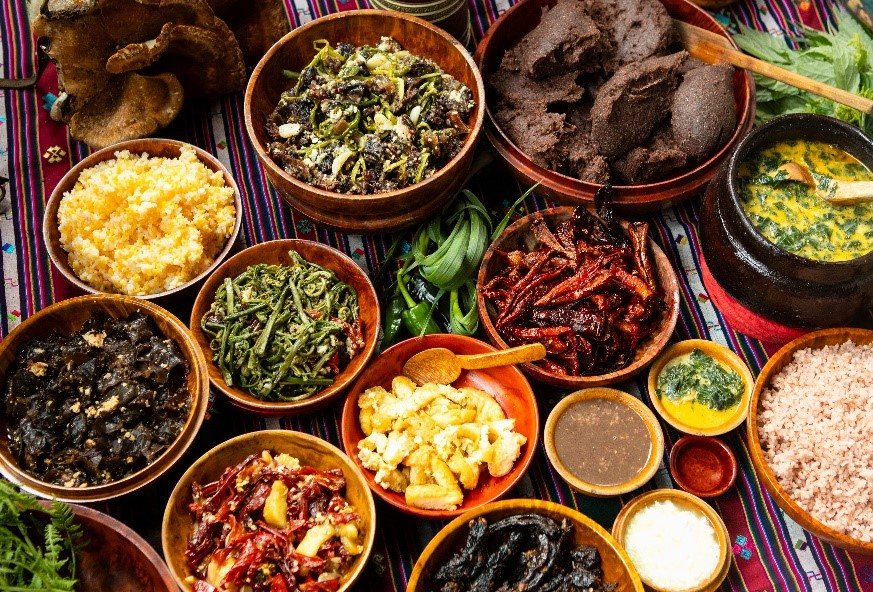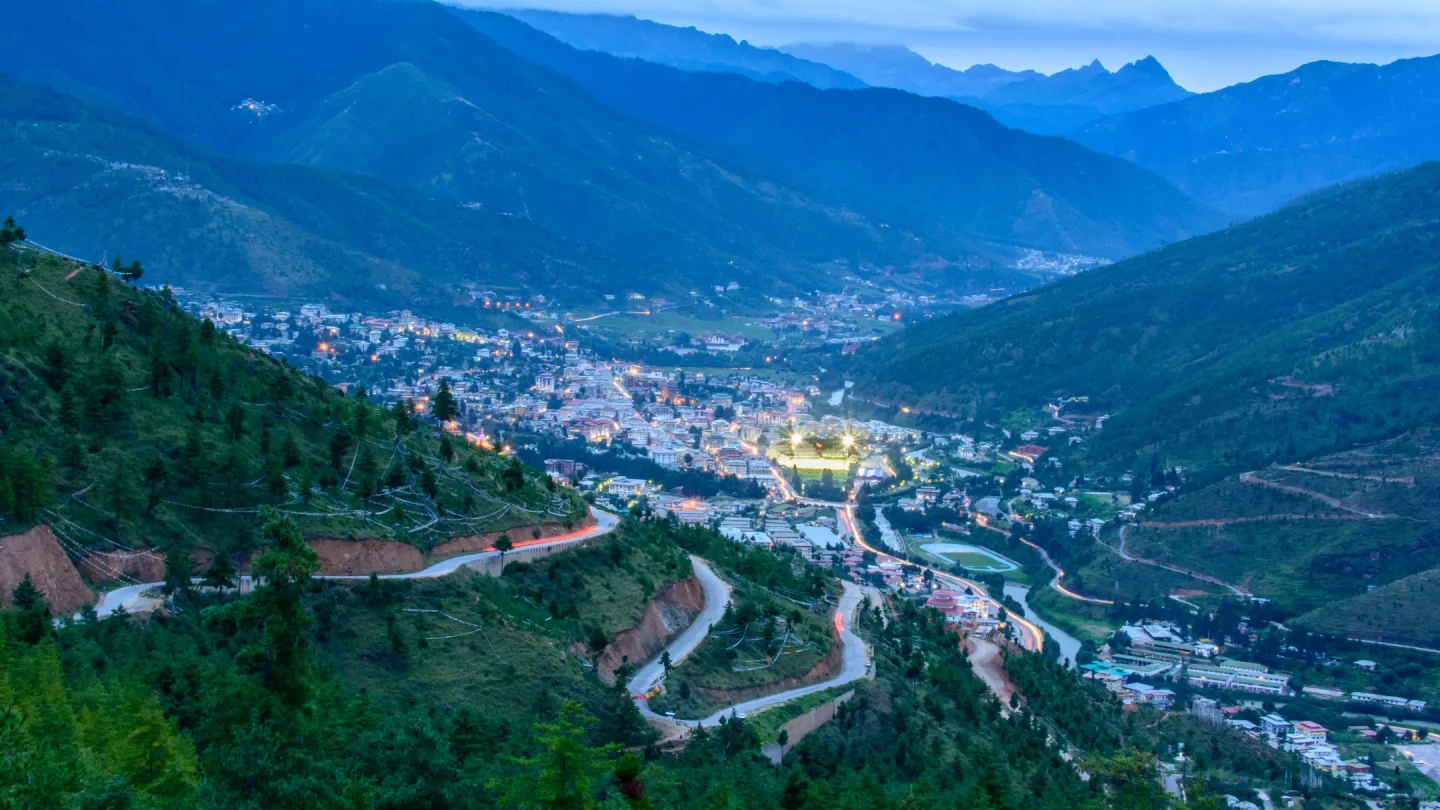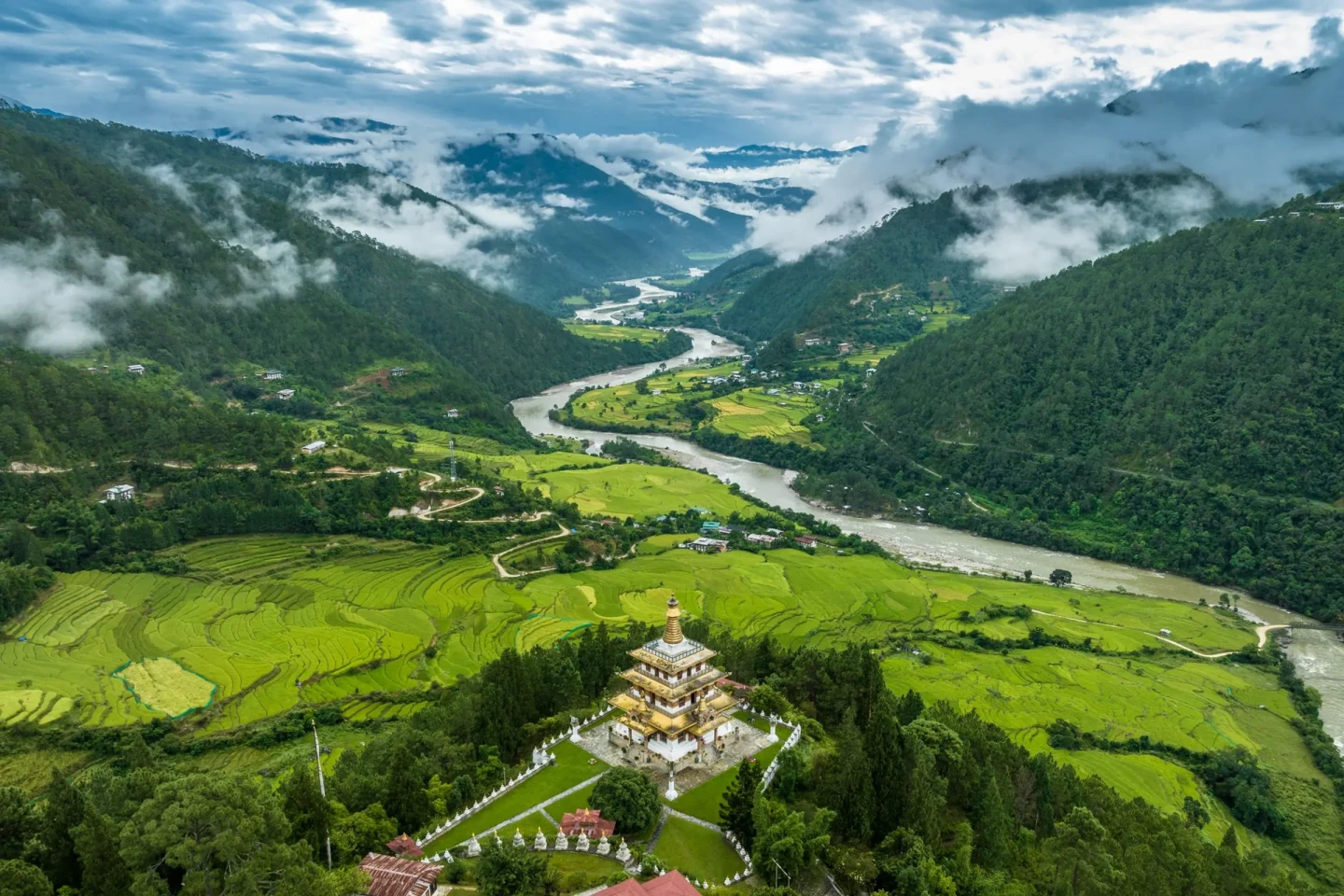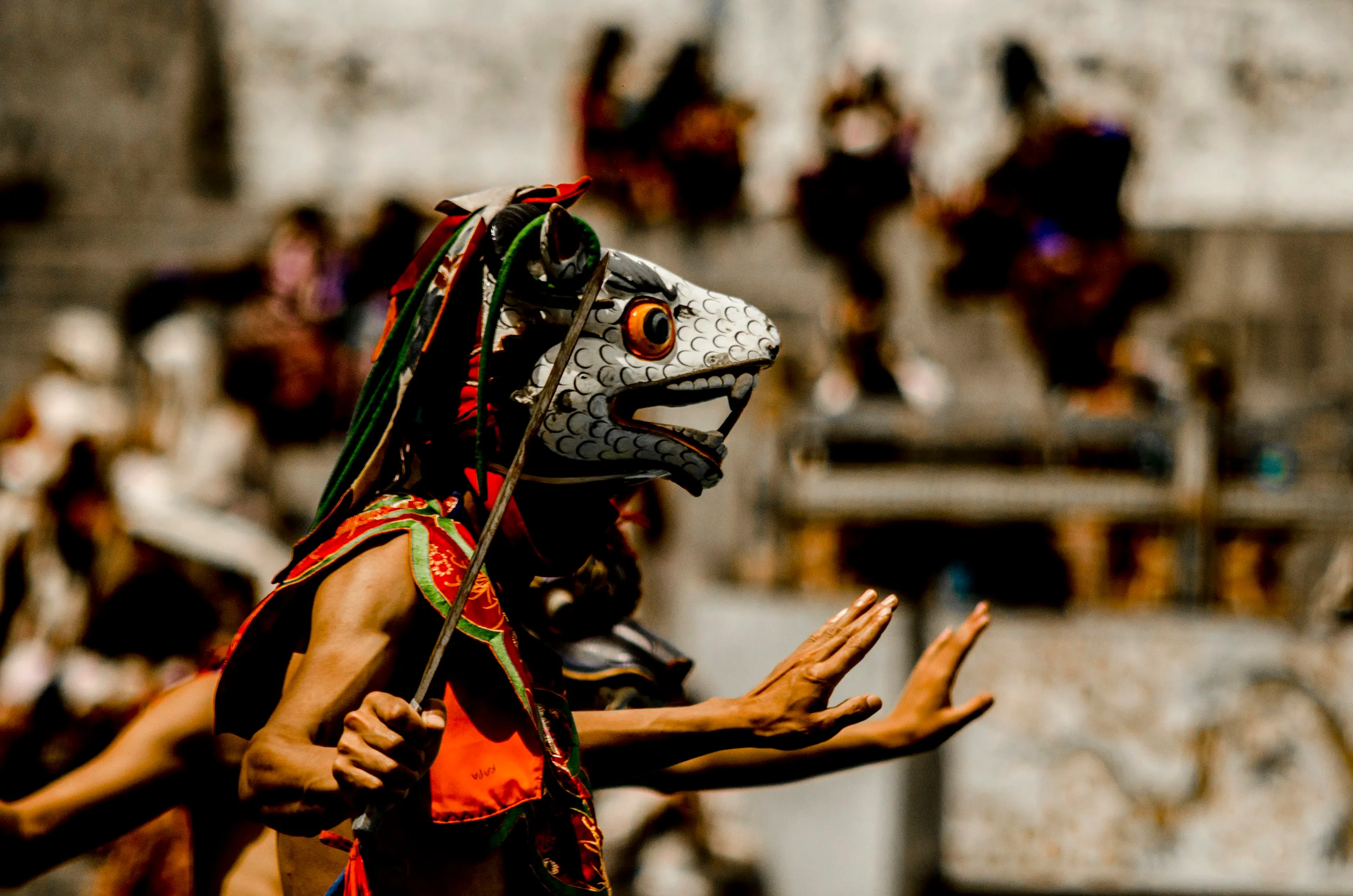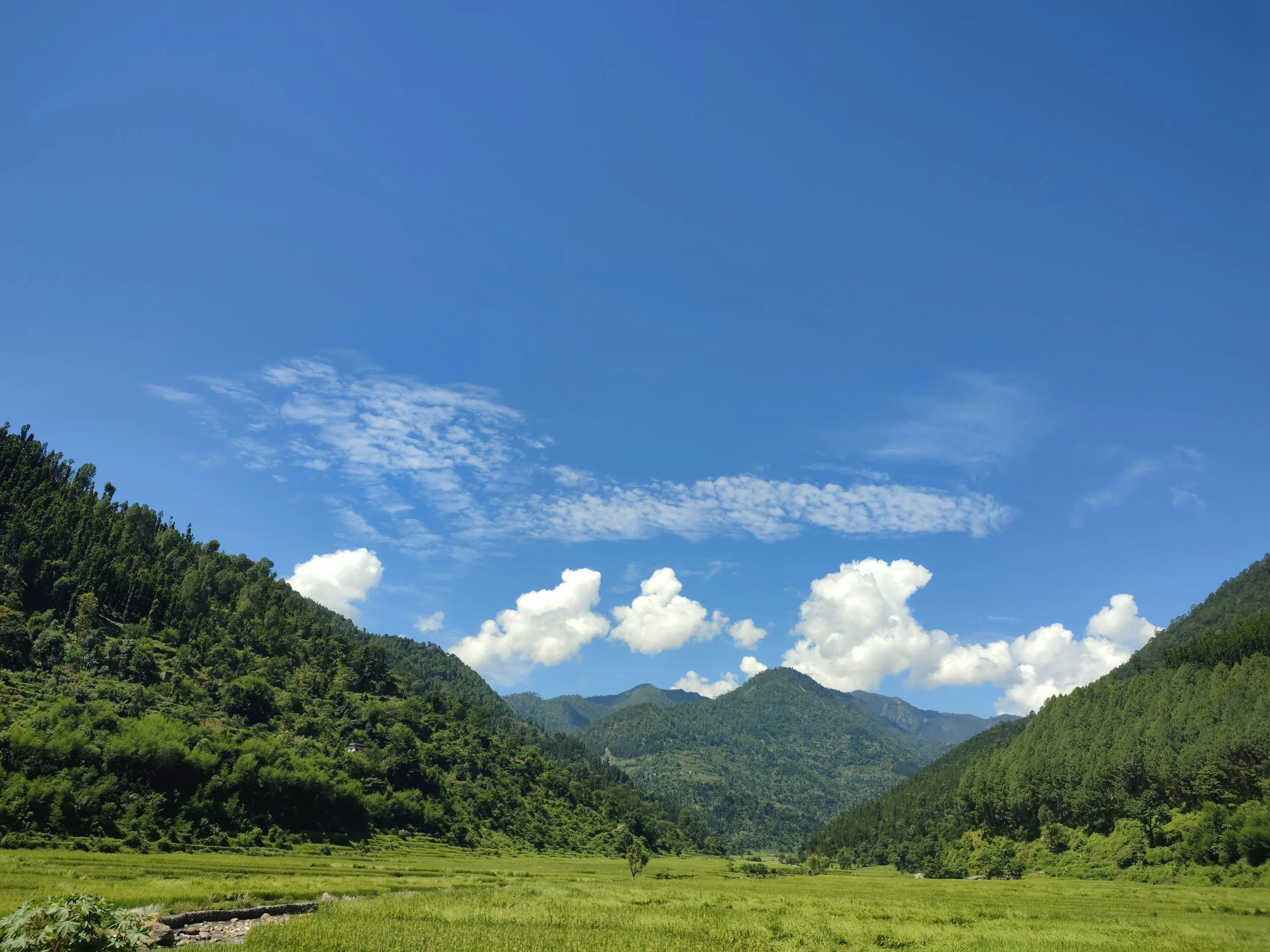Bhutan, the serene Himalayan kingdom known as the Land of the Thunder Dragon, beckons Nigerian travelers with its pristine landscapes, vibrant Buddhist culture, and a philosophy of Gross National Happiness (GNH) that prioritizes well-being over material wealth. Nestled between India and China, this small nation offers a travel experience unlike any other, where ancient monasteries cling to mountainsides, colorful prayer flags flutter in the breeze, and a commitment to sustainability shapes every aspect of life. For Nigerians, whose vibrant culture is rooted in community, tradition, and resilience, Bhutan presents a fascinating contrast and complement. While Nigeria pulses with urban energy, diverse ethnic traditions, and a dynamic economy, Bhutan embraces a quieter, more introspective way of life, preserving its heritage through careful stewardship. The relationship between Nigeria and Bhutan, though not deeply formalized, is built on mutual respect within international forums like the United Nations, where both nations advocate for sustainable development and cultural preservation. This guide, crafted with the Nigerian traveler in mind, offers a comprehensive roadmap to navigating Bhutan’s unique travel landscape, from practical logistics to cultural nuances, ensuring an enriching and respectful journey into this Himalayan gem.
Visa and Entry Requirements
Bhutan’s tourism policy is deliberately controlled to protect its cultural heritage and environment, adhering to a “High Value, Low Impact” philosophy. For Nigerian tourists, this means all travel must be arranged through a licensed Bhutanese tour operator or a certified hotel, as independent travel is not permitted. The visa process begins with booking a tour, after which the operator submits an e-Visa application on your behalf through the Department of Immigration’s online portal. Required documents include a scanned copy of your passport (valid for at least six months beyond your departure date from Bhutan), a recent passport-sized photograph, and proof of travel insurance covering medical emergencies and evacuation. The visa fee is USD 40, non-refundable, and processing typically takes five business days. Upon approval, you receive a visa clearance letter, which you must present at Paro International Airport or a land border entry (Phuentsholing, Gelephu, or Samdrup Jongkhar) to have the visa stamped in your passport. Additionally, all visitors must pay a Sustainable Development Fee (SDF) of USD 100 per person per night (as of August 2025), which funds Bhutan’s carbon-neutral initiatives, education, and healthcare. This fee significantly impacts trip costs, often making Bhutan one of the more expensive destinations, but it ensures your visit contributes to the nation’s sustainability. Your tour operator handles SDF payment during the visa process, and children under five are exempt, with reduced rates for children aged 5–12. Ensure your passport is not reported lost or stolen, as this will result in denied entry.
Travel Routes from Nigeria to Bhutan
Traveling from Nigeria to Bhutan requires careful planning due to the absence of direct flights and the unique operational constraints of Paro International Airport, one of the world’s most challenging airports due to its high altitude and surrounding peaks. Nigerian travelers typically depart from major cities like Lagos or Abuja, transiting through international hubs such as Dubai, Delhi, Bangkok, or Kathmandu before connecting to Paro. Popular airlines for the initial leg include Emirates, Qatar Airways, or Ethiopian Airlines, which offer reliable connections to Delhi (Indira Gandhi International Airport) or Bangkok (Suvarnabhumi Airport). From these hubs, only two airlines—Drukair (Royal Bhutan Airlines) and Bhutan Airlines—operate flights to Paro, with routes from Delhi, Bangkok, Kathmandu, Kolkata, or Singapore. For example, a common itinerary might involve flying from Lagos to Delhi via Dubai (approximately 10–12 hours), followed by a 2–3-hour Drukair flight to Paro. Flights to Paro are restricted to daylight hours and are weather-dependent, particularly during the monsoon season (June–September), when delays or cancellations are common. Booking flights at least three months in advance is advisable, especially during peak seasons (March–May, September–November), as seats are limited. Nigerian travelers transiting through India may need an Indian transit visa if leaving the airport or staying overnight; confirm this with your airline or tour operator. Allow at least 24 hours for connections to account for potential delays, and opt for flexible, non-restricted air tickets to facilitate rebooking if necessary. Land entry is possible via India’s border towns (Phuentsholing, Gelephu, or Samdrup Jongkhar), but this involves a lengthy drive (e.g., 5–6 hours from Bagdogra Airport in West Bengal to Phuentsholing), making air travel the preferred option for most Nigerians.
Best Time to Visit and Seasonality
Bhutan’s climate varies dramatically due to its Himalayan terrain, offering distinct experiences across its seasons, which Nigerian travelers should consider when planning their trip. Spring (March–May) is a prime time to visit, with mild temperatures (10–20°C in Paro and Thimphu), blooming rhododendrons, and vibrant festivals like the Paro Tshechu, a religious celebration featuring masked dances and cultural displays. Autumn (September–November) is equally popular, offering clear skies, comfortable temperatures (8–18°C), and major festivals like the Thimphu Tshechu, which showcase Bhutan’s spiritual heritage. These peak seasons attract more visitors, so early booking is essential. Summer (June–August) brings the monsoon, with heavy rainfall, muddy trails, and risks of landslides, making it less ideal for trekking or outdoor activities, though the lush greenery appeals to some. Winter (December–February) is cold, especially at higher altitudes (0–10°C in Paro), but offers crisp air, fewer crowds, and stunning Himalayan views. The National Day celebrations on December 17 in Thimphu provide a unique opportunity to witness royal ceremonies and cultural pride. For Nigerian travelers accustomed to Nigeria’s tropical climate, spring or autumn are recommended for their pleasant weather and festival opportunities, balancing comfort with cultural immersion. Winter is suitable for those who don’t mind cooler temperatures and prefer a quieter experience, but summer’s challenges make it less appealing unless you’re drawn to Bhutan’s verdant landscapes.
Money, Costs, and Payment Methods
Bhutan’s official currency is the Bhutanese Ngultrum (BTN), pegged to the Indian Rupee (INR), which is widely accepted. For Nigerian travelers, carrying US dollars (USD) in cash is advisable, as they are easily exchanged at banks or authorized money changers in Thimphu, Paro, or Phuentsholing. Nigerian Naira is not accepted, and currency exchange facilities are limited outside major towns. ATMs are available in cities like Thimphu and Paro, but they may not always accept international cards, so rely on cash for most transactions. Credit cards (Visa, Mastercard) are accepted at larger hotels and some shops, but smaller establishments prefer cash. The cost of a Bhutan trip is high due to the mandatory Sustainable Development Fee (USD 100 per night) and the requirement to book through a tour operator, whose packages typically start at USD 200–250 per day, covering accommodation in 3-star hotels, meals, internal transport, guides, and entry fees to attractions. Extras like alcoholic beverages, souvenirs, tips (USD 5–10 per day for guides and drivers), and premium hotel upgrades (e.g., 5-star properties like Aman or Uma) are not included. Nigerian travelers should budget an additional USD 50–100 per day for personal expenses. Tour payments are usually made via bank transfer to the operator’s account at Bhutan National Bank before arrival, so confirm payment methods and deadlines early. Be mindful that you can bring up to 30,000 BTN into or out of Bhutan, and amounts exceeding USD 10,000 in foreign currency must be declared to the Royal Monetary Authority.
Health, Safety, and Travel Insurance
Bhutan is a safe destination with low crime rates, making it welcoming for Nigerian travelers, but health and safety considerations are crucial due to its high-altitude environment and limited medical infrastructure. Altitude sickness is a risk above 2,500 meters (e.g., Paro at 2,200m, Thimphu at 2,400m, or higher trekking routes), with symptoms like headaches, nausea, or fatigue. Consult a doctor 4–6 weeks before travel to discuss acclimatization strategies or medications like Diamox. Medical facilities in Bhutan are basic, with Jigme Dorji Wangchuck National Referral Hospital in Thimphu being the best option, but emergency care is limited outside major cities. Comprehensive travel insurance covering medical evacuation is non-negotiable, as helicopter evacuations from remote areas are costly and not covered by tour packages. Recommended vaccinations include hepatitis A, typhoid, and routine shots (MMR, diphtheria-tetanus-polio); check with a travel clinic for updates. Mosquito-borne diseases like dengue or malaria are rare but possible in lower regions, so use repellents. Bhutan’s low crime rate ensures personal safety, but petty theft (e.g., pickpocketing) can occur in crowded markets. Stray dogs, common in towns, may carry rabies, so avoid contact and seek immediate medical attention if bitten. Uneven terrain and narrow mountain roads require caution, especially during the monsoon season (June–September), when landslides are possible. Always follow your guide’s advice and enroll in Nigeria’s equivalent of the Smart Traveler Enrollment Program for emergency updates.
Cultural Etiquette and Social Expectations
Bhutanese culture is deeply rooted in Buddhism and tradition, requiring Nigerian travelers to adopt a respectful and mindful approach to avoid unintentional offense. Modesty in dress is essential, particularly at religious sites like monasteries, temples, or Dzongs (fortified buildings). Wear long-sleeved shirts and pants or skirts covering the knees, and remove shoes and hats before entering sacred spaces. Avoid pointing at religious objects or people, and always circumambulate stupas, chortens, or temples clockwise, as counterclockwise movement is considered disrespectful. Bhutanese people value humility and patience, contrasting with Nigeria’s vibrant and expressive social norms, so loud or boisterous behavior may stand out. Greetings are subtle—smile, nod, or say “Kuzuzangpo” (hello)—and avoid physical contact like handshakes unless initiated. When visiting homes or meeting elders, sit cross-legged on the floor and accept tea or food graciously, even if just a sip, as refusal may be seen as impolite. Public displays of affection are frowned upon, and criticizing the monarchy or religion is highly offensive and illegal. Nigerian travelers, known for their warmth and community spirit, can connect with Bhutanese hospitality by showing curiosity and respect for local traditions, asking guides for guidance when unsure.
Connectivity, SIM Cards, and Internet Access
Staying connected in Bhutan is possible but requires planning, as internet and mobile services are less developed than in Nigeria’s urban centers. Wi-Fi is available in most 3-star and higher hotels in Thimphu, Paro, and Punakha, but it can be slow or unreliable in rural areas. For mobile connectivity, Nigerian travelers should purchase a local SIM card from B-Mobile or TashiCell, Bhutan’s two main providers, available at Paro Airport, Thimphu, or Phuentsholing. A SIM card costs around BTN 200–300 (USD 3–4), and data packages (e.g., 1GB daily for BTN 100) can be activated with a passport copy. Your tour operator or guide can assist with setup. Nigerian apps like WhatsApp or banking services typically work, but some websites may be restricted due to Bhutan’s internet regulations; a VPN can help but isn’t always necessary. Expect limited signal in remote valleys or trekking routes, so inform family in Nigeria about potential communication gaps. For emergencies, keep your guide’s contact details and note that Bhutan’s mobile networks are reliable in urban areas but not guaranteed in the wilderness.
Language and Communication
Bhutan’s official language is Dzongkha, but English is widely used in tourism, education, and government, making communication straightforward for Nigerian travelers fluent in English. Tour guides, hotel staff, and urban Bhutanese are generally proficient in English, ensuring smooth interactions. However, Hausa-speaking guides are not available, as Bhutan’s tourism industry caters primarily to English-speaking visitors. For travelers with limited English, communication may be challenging outside tourist settings, as rural locals may only speak Dzongkha or regional dialects like Sharchop or Lhotshampa. To bridge this gap, rely on your guide as an interpreter, and consider learning basic Dzongkha phrases like “Kuzuzangpo” (hello) or “Thuk-je-che” (thank you) to show respect. Non-verbal communication, such as smiles and gestures, is universally understood, but avoid pointing with fingers, as it’s considered rude. Carrying a small phrasebook or translation app can help, though internet-dependent apps may be unreliable in remote areas. Your tour operator can arrange guides with strong communication skills to ensure clarity throughout your trip.
Packing and Preparation Advice
Packing for Bhutan requires careful consideration of its diverse climates, high altitudes, and cultural expectations, especially for Nigerian travelers accustomed to tropical conditions. For spring or autumn visits, bring lightweight, breathable clothing (long pants, long-sleeved shirts) for daytime (10–20°C) and warm layers (fleece, jacket) for cooler evenings or higher altitudes. Winter travelers need heavier gear, including thermal wear, gloves, and a down jacket, as temperatures can drop below 0°C. Monsoon season demands waterproof jackets, sturdy shoes, and quick-dry clothing due to frequent rain. Comfortable walking shoes or hiking boots are essential for uneven terrain and temple visits, where shoes must be removed. Pack modest clothing to respect Bhutanese norms—avoid shorts, tank tops, or revealing outfits. A universal power adapter (Type D or F, 230V, 50Hz) is necessary, as Nigeria’s Type G plugs are not compatible. Bring prescription medications with a doctor’s note, as pharmacies are limited, and include over-the-counter remedies for altitude sickness, headaches, or digestive issues. A reusable water bottle, sunscreen, sunglasses, and a hat protect against strong Himalayan sun. A small backpack for day trips, a flashlight for power outages, and insect repellent for lower regions are practical additions. Finally, pack a journal or camera to capture Bhutan’s beauty, ensuring you respect photography rules at sacred sites.
Bhutan’s Unique Tourism Philosophy
Bhutan’s tourism philosophy, anchored in Gross National Happiness (GNH), sets it apart as a destination that prioritizes cultural preservation, environmental sustainability, and spiritual well-being over mass tourism. GNH, a guiding principle since the 1970s, measures national progress through happiness and balance rather than economic growth alone, influencing Bhutan’s decision to limit visitor numbers and maintain a “High Value, Low Impact” policy. For Nigerian travelers, this means a curated experience where every visit supports conservation, education, and community welfare through the Sustainable Development Fee. Unlike Nigeria’s bustling tourism hubs like Lagos or Abuja, where commerce and modernity drive development, Bhutan restricts infrastructure growth to preserve its 72% forest cover and carbon-negative status. This cautious approach ensures that sacred sites, like the Tiger’s Nest Monastery, and pristine valleys remain unspoiled, offering an authentic encounter with a culture deeply rooted in Vajrayana Buddhism. Nigerian visitors, accustomed to vibrant markets and urban energy, may find Bhutan’s deliberate pace and focus on quality over quantity refreshing, aligning with shared values of community and heritage preservation, albeit expressed in a uniquely Himalayan way.
Mindset and Expectations for Visitors
Traveling to Bhutan requires Nigerian visitors to embrace a slower, more reflective pace of life, distinct from Nigeria’s dynamic urban centers. Bhutan lacks the skyscrapers, fast-food chains, or nightlife found in Lagos or Abuja, instead offering small, family-run hotels, winding mountain roads, and a focus on nature and spirituality. Expect basic but comfortable accommodations, as even 3-star hotels prioritize functionality over luxury. Infrastructure is limited—roads may be narrow, and power outages are occasional—so flexibility is key. Bhutan’s charm lies in its simplicity, where a visit to a rural village or a quiet moment at a monastery feels more profound than commercial attractions. Nigerian travelers, known for their adaptability and warmth, should approach Bhutan with an open heart, ready to engage with its people and traditions. The absence of luxury shopping or entertainment is offset by the richness of cultural experiences, such as attending a Tshechu festival or hiking to a cliffside temple. By setting aside expectations of fast-paced convenience, visitors can fully immerse themselves in Bhutan’s serene, soul-nourishing environment.
Food and Dining Culture
Bhutanese cuisine reflects the country’s rugged terrain and cultural simplicity, offering Nigerian travelers a bold yet unfamiliar culinary experience. Staples include red rice, buckwheat, or corn, paired with protein-rich dishes like pork, beef, or chicken, often served with spicy chili-based stews. Ema Datshi, a national dish of green chilies in cheese sauce, is ubiquitous and far spicier than typical Nigerian jollof or pepper soup, so those sensitive to heat should request milder versions. Vegetables like ferns, mushrooms, or potatoes feature heavily, and meals are often buffet-style in hotels, tailored slightly for Western palates but retaining Bhutanese flavors. Tea, especially butter tea (suja), is a cultural cornerstone, served salty and warm, while ara, a local rice spirit, is offered in social settings—accept it politely, even if just a sip. Dining is a communal act, and Bhutanese hospitality emphasizes sharing food as a gesture of warmth, resonating with Nigeria’s communal dining traditions. Nigerian travelers should embrace trying local dishes, as refusing food may be seen as impolite. Alcohol is legal but limited in quantity for tourists, and hotels provide tea, coffee, and bottled water. For dietary restrictions (e.g., halal or vegetarian), inform your tour operator in advance, as options are limited outside major towns.
Festivals, Religion, and Sacred Places
Religion, specifically Vajrayana Buddhism, is the heartbeat of Bhutanese culture, shaping daily life and the tourist experience. Nigerian travelers will find Bhutan’s spiritual depth captivating, especially during Tshechus, vibrant festivals held annually in each district, featuring masked dances, music, and communal celebrations. Major events like the Paro Tshechu (spring) or Thimphu Tshechu (autumn) draw locals and visitors to Dzongs, where monks perform rituals honoring Guru Rinpoche. Attending a Tshechu offers insight into Bhutan’s devotion, but visitors must dress modestly, remain quiet during ceremonies, and avoid obstructing worshippers. Sacred sites, such as Paro’s Tiger’s Nest Monastery or Punakha Dzong, require strict etiquette: remove shoes, avoid photography inside altar rooms, and offer small donations (BTN 50–100) if seeking a blessing. These sites are not mere attractions but living spiritual centers, so approach them with reverence. For Nigerians, whose cultural festivals like Durbar or Argungu are vibrant and communal, Bhutan’s Tshechus offer a parallel sense of celebration, though quieter and more introspective. Engaging with these traditions deepens understanding of Bhutan’s identity, where faith and community are inseparable.
Hidden Challenges and Practical Inconveniences
Bhutan’s charm includes its rustic simplicity, but this comes with challenges that Nigerian travelers should approach with patience. Service in restaurants or hotels may be slower than in Nigeria’s fast-paced urban centers, reflecting Bhutan’s unhurried lifestyle. Itineraries may change due to weather, road conditions, or festival schedules, as mountain passes can close during monsoons or snow. Power outages are occasional, especially in rural areas, so a flashlight or power bank is handy. Roads are narrow and winding, making travel between towns (e.g., Thimphu to Punakha, 3–4 hours) feel longer than expected. Public transport is limited, and taxis in smaller towns are unreliable, so rely on your tour operator’s vehicles. These inconveniences are not shortcomings but part of Bhutan’s authentic character, where nature and tradition take precedence over modern efficiency. Nigerian travelers, accustomed to navigating logistical challenges at home, can embrace these quirks as opportunities to slow down and connect with Bhutan’s serene rhythm, trusting their guide to manage disruptions.
Shopping and Souvenirs
Shopping in Bhutan offers a window into its artisanal heritage, distinct from Nigeria’s bustling markets like Balogun or Oshodi. Expect small shops and weekend markets in Thimphu or Paro, selling handwoven textiles (e.g., kira and gho fabrics), wooden carvings, prayer wheels, and incense. These items, often crafted by local families, carry cultural significance, unlike the mass-produced goods found in global tourist hubs. Prices are generally fixed, and aggressive haggling, common in Nigerian markets, is not the norm—polite negotiation is acceptable but rare. Authentic souvenirs include thangka paintings, Buddhist statues, or handmade paper products, but ensure they come with a certificate of authenticity to avoid export issues. Avoid purchasing wildlife products, as they’re illegal. Shopping is limited to small stores, with no duty-free malls or luxury brands, aligning with Bhutan’s minimalist ethos. Budget USD 50–200 for souvenirs, and use cash (BTN or USD) for most purchases, as card acceptance is spotty. Nigerian travelers can appreciate these crafts as pieces of Bhutan’s history, similar to Nigeria’s own rich textile and beadwork traditions.
Altitude Awareness and Physical Preparedness
Bhutan’s high-altitude environment, ranging from 2,200m in Paro to over 3,000m in places like Bumthang, poses a unique challenge for Nigerian travelers, who may be unfamiliar with Himalayan conditions. Altitude sickness can affect anyone, regardless of fitness, with symptoms like headaches, dizziness, or shortness of breath. To minimize risks, acclimatize gradually—spend your first day in Paro or Thimphu before ascending higher. Stay hydrated (3–4 liters of water daily), avoid alcohol, and eat light, high-carb meals. Consult a doctor about medications like Diamox before departure, and inform your guide if symptoms arise. Treks, such as the hike to Tiger’s Nest (3,120m), require moderate fitness, sturdy shoes, and pacing to avoid overexertion. Nigerian travelers, used to Nigeria’s sea-level climate, should prepare with light exercise (e.g., walking or stair climbing) weeks before the trip. Rest days in your itinerary help adjust to altitude, ensuring you can fully enjoy Bhutan’s breathtaking landscapes without health setbacks.
Security, Safety, and Emergency Information
Bhutan is one of the safest destinations for Nigerian travelers, with a low crime rate and a welcoming populace. Violent crime is rare, but petty theft or pickpocketing can occur in crowded markets, so secure valuables in a hotel safe. Local laws are strict—disrespecting the monarchy, religion, or cultural sites can lead to fines or imprisonment, so always follow your guide’s advice. In emergencies, contact your tour operator or guide, who can connect you to local police (dial 113) or medical services (dial 112). Nigeria’s High Commission in New Delhi, India (+91 11 4178 2000), handles consular services for Bhutan, as there’s no Nigerian embassy there. Register with the High Commission before travel for emergency alerts. Natural hazards like earthquakes or monsoon landslides are rare but possible, so monitor weather updates and avoid risky areas during June–September. Bhutan’s peaceful environment and strict regulations ensure a secure visit, but staying vigilant and respectful keeps your trip trouble-free.
Photography and Drones
Bhutan’s stunning landscapes and vibrant festivals are a photographer’s dream, but strict rules govern photography to protect cultural and religious sanctity. Photography is permitted in public spaces and exteriors of Dzongs or monasteries, but indoor altar rooms and sacred objects are off-limits unless explicitly allowed. Always ask permission before photographing locals, especially monks or worshippers, to avoid disrupting their privacy or rituals. Nigerian travelers, accustomed to Nigeria’s lively street photography culture, should exercise extra caution here, as cultural sensitivity is paramount. Drones are heavily restricted and require a permit from the Bhutan Civil Aviation Authority, rarely granted to tourists, so leave drones at home to avoid confiscation. Carry extra camera batteries and memory cards, as charging facilities may be limited in rural areas. A lightweight tripod is useful for capturing Himalayan vistas or festival scenes. By respecting these rules, you can document Bhutan’s beauty while honoring its traditions.
What Bhutan Does Not Have
Bhutan’s allure lies in what it lacks as much as what it offers, setting it apart from Nigeria’s urban vibrancy. You won’t find skyscrapers, fast-food chains like KFC, casinos, or sprawling shopping malls. Nightlife is minimal, with no clubs or bars akin to Lagos’s bustling scene, and luxury brands are absent. Instead, Bhutan offers small, family-run shops, quiet evenings, and a focus on nature and spirituality. This absence of commercial excess is deliberate, aligning with Bhutan’s Gross National Happiness philosophy, which values simplicity and sustainability over materialism. For Nigerian travelers seeking high-end amenities or fast-paced entertainment, this may feel limiting, but it’s precisely this purity that makes Bhutan unique—a place to disconnect from modernity and reconnect with culture and nature.
Important Questions to Ask Before Booking a Tour
Before booking your Bhutan tour, Nigerian travelers should ask specific questions to ensure a seamless and tailored experience. Inquire about the guide’s experience and language proficiency—confirm they speak clear English, as Hausa-speaking guides are unavailable, and ask if they can handle special requests like cultural explanations or dietary needs (e.g., halal or less spicy food). Ask about itinerary flexibility: can you adjust plans for rest days or spontaneous festival visits? Clarify accommodation details—request photos or descriptions of hotels, as standards vary, and confirm if upgrades to 4- or 5-star properties are available. Ask what’s included in the tour price (meals, transport, entry fees) and what’s extra (tips, drinks, souvenirs). For health and safety, confirm the operator’s emergency protocols, including access to medical facilities or evacuation plans, and verify that your travel insurance meets Bhutan’s requirements. Inquire about SIM card arrangements—can the operator provide or assist with B-Mobile or TashiCell SIMs? Ask about tipping customs (typically USD 5–10 daily for guides and drivers) and whether the operator can accommodate specific cultural or religious needs, such as prayer times. Finally, request a detailed breakdown of the Sustainable Development Fee and visa process to avoid surprises. A reputable operator will answer transparently, ensuring your trip aligns with your expectations.
Conclusion
Bhutan remains a rare and extraordinary destination for Nigerian travelers seeking more than a typical vacation. Its untouched landscapes, from the snow-capped Himalayas to lush valleys, offer a stark contrast to Nigeria’s vibrant urban centers, inviting visitors to pause and reflect. The kingdom’s commitment to Gross National Happiness, its Buddhist heritage, and its cautious approach to tourism create an experience that is both profound and intimate, where every interaction—with a monk, a festival, or a mountain trail—feels meaningful. For Nigerians, whose culture celebrates community, resilience, and tradition, Bhutan’s emphasis on harmony and preservation resonates deeply, offering a chance to connect with a society that values happiness over haste. By approaching Bhutan with respect, curiosity, and an open heart, Nigerian travelers can forge memories of spiritual peace, cultural depth, and natural beauty, returning home with a renewed appreciation for a world where simplicity is a treasure. This journey, though logistically complex and costly, rewards those who seek authenticity and serenity in a way few destinations can match.




